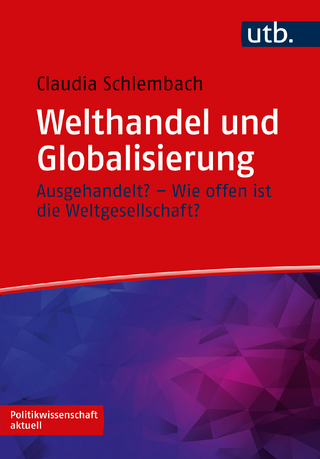
Money at the Margins
Berghahn Books (Verlag)
978-1-78920-048-5 (ISBN)
Mobile money, e-commerce, cash cards, retail credit cards, and more—as new monetary technologies become increasingly available, the global South has cautiously embraced these mediums as a potential solution to the issue of financial inclusion. How, if at all, do new forms of dematerialized money impact people’s everyday financial lives? In what way do technologies interact with financial repertoires and other socio-cultural institutions? How do these technologies of financial inclusion shape the global politics and geographies of difference and inequality? These questions are at the heart of Money at the Margins, a groundbreaking exploration of the uses and socio-cultural impact of new forms of money and financial services.
Bill Maurer is Dean of Social Sciences and Professor of Anthropology and Law, University of California, Irvine. He is the Director of the Institute for Money, Technology and Financial Inclusion (IMTFI), and author of How Would You Like to Pay? How Technology is Changing the Future of Money (2015) among many other publications.
List of Illustrations
Acknowledgements
Introduction: Money and Finance at the Margins
Smoki Musaraj and Ivan V. Small
PART I: IN/EXCLUSION
The Question of Inclusion
Ananya Roy
Chapter 1. A Living Fence: Financial Inclusion and Exclusion on the Haitian-Dominican Republic Border
Erin B. Taylor and Heather A. Horst
Chapter 2. Capital Mobilization among Somali Refugee Business Community in Nairobi, Kenya
Kenneth Omeje and John Mwangi Githigaro
Chapter 3. The Use of Mobile-Money Technology among Vulnerable Populations in Kenya: Opportunities and Challenges for Poverty Reduction
Ndunge Kiiti and Jane Wanza Mutinda
PART II: VALUE AND WEALTH
What do Value and Wealth Do? “Life” Goes On, Whatever “Life” Is.
Jane I. Guyer
Chapter 4. Dhikuti Economies: The Moral and Social Ecologies of Rotating Finance in the Kathmandu Valley
Sepideh Azarshahri Bajracharya
Chapter 5. Chiastic Currency Spheres: Postsocialist “Conversions” in Cuba’s Dual Economy
Mrinalini Tankha
Chapter 6. Carola and Saraswathi: Juggling Wealth in India and in Mexico
Magadalena Villarreal, Isabelle Guérin, and K. S. Santosh Kumar
PART III: TECHNOLOGY AND SOCIAL RELATIONS
Infrastructures of Digital Money
Jenna Burrell
Chapter 7. ‘Financial Inclusion Means Your Money Isn’t With You’: Conflicts over Social Grants and Financial Services in South Africa
Kevin P. Donovan
Chapter 8. Social Networks of Mobile Money in Kenya
Sibel Kusimba, Gabriel Kunyu, and Elizabeth Gross
Chapter 9. Accounting in the Margin: Financial Ecologies in between Big and Small Data
José Ossandón, Tomás Ariztía, Macarena Barros, and Camila Peralta
PART IV: DESIGN AND PRACTICE
Design and Practice
Joshua E. Blumenstock
Chapter 10. Understanding Social Relations and Payments among Rural Ethiopians
Woldmariam F. Mesfin
Chapter 11. Delivering Cash Grants to Indigenous Peoples through Cash Cards versus Over-the-Counter Modalities: The Case of the 4Ps Conditional Cash Transfer Program in Palawan, Philippines
Anatoly "Jing" Gusto and Emily Roque
Chapter 12. Effects of Mobile Banking on the Savings Practices of Low Income Users: The Indian Experience
Mani A. Nandhi
Chapter 13. Betting on Chance in Colombia: Using Empirical Work on Game Networks to Develop Practical Design Guidelines
Ana María Echeverry and Coppelia Herrán Cuartas
Afterword
Bill Maurer
Index
| Erscheinungsdatum | 01.04.2019 |
|---|---|
| Reihe/Serie | The Human Economy |
| Verlagsort | Oxford |
| Sprache | englisch |
| Maße | 152 x 229 mm |
| Themenwelt | Sozialwissenschaften ► Ethnologie |
| Sozialwissenschaften ► Soziologie | |
| Wirtschaft ► Volkswirtschaftslehre ► Wirtschaftspolitik | |
| ISBN-10 | 1-78920-048-2 / 1789200482 |
| ISBN-13 | 978-1-78920-048-5 / 9781789200485 |
| Zustand | Neuware |
| Haben Sie eine Frage zum Produkt? |
aus dem Bereich


